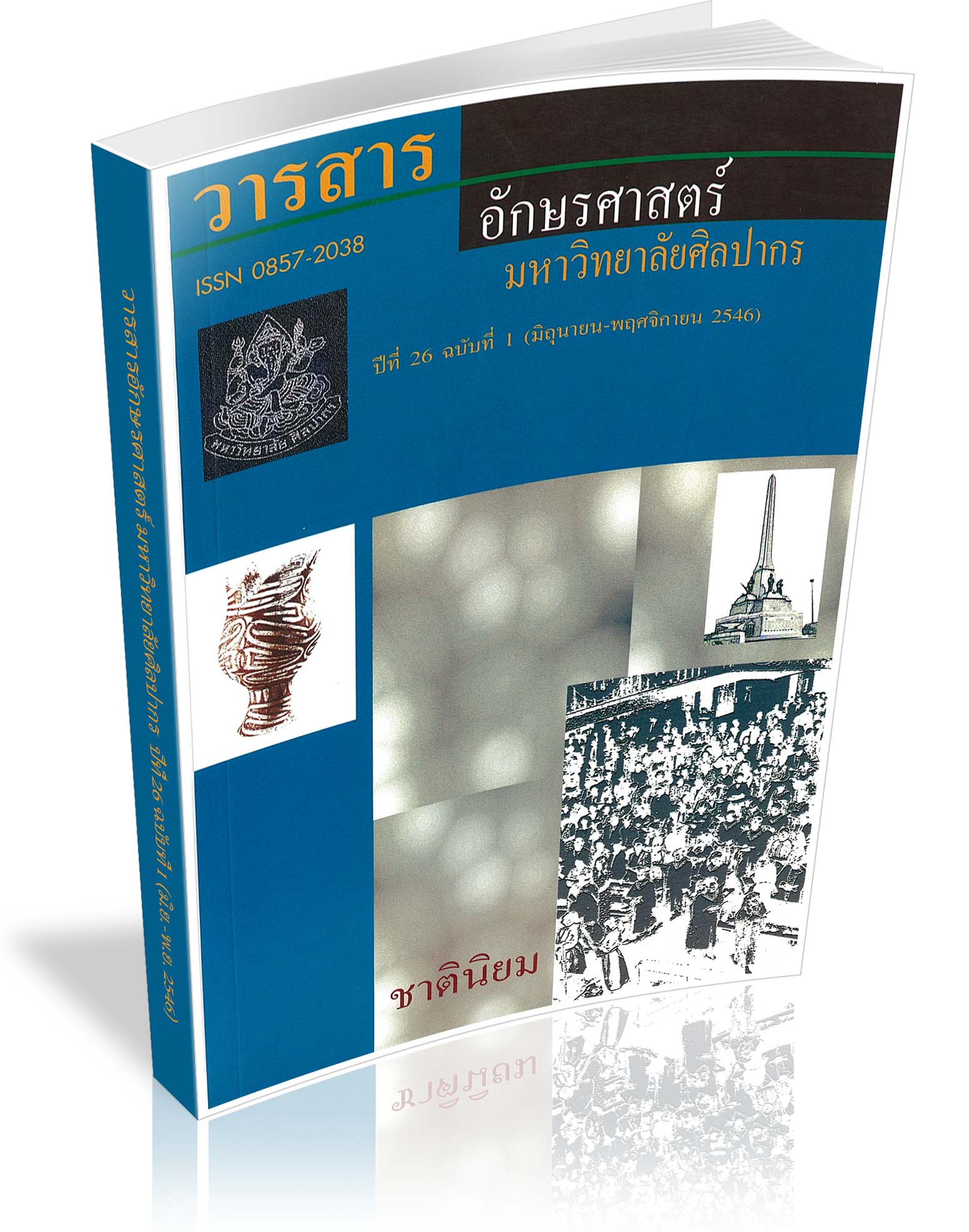The Evolution of Thai Music: Thai Music Book in the Chauvinistic Nationalism Era
Keywords:
Thai MusicAbstract
The study of Thai music is now increasingly more academic and its role is not limited only to cultural preservation as it was in the past. More attempts have been made in establishing Thai music principles and theories but still not many references are available. One of the references about the study of Thai music is the Evolution of Thai Music. Written in English by Luang Vichitra Vadakarn, the director of Department of Fine Arts, it is considered the first academic study of principles of Thai music. Yet this book is also served as a medium of the Field Marshal Plaek Phibulsongkhram regime's chauvinistic ratthaniyom (state prescrip tions). This regime, under its chauvinistic nationalism ideology, demands that Thai traditional art and culture as well as Thai music had to be reformed to become “civilized". The reform caused some changes in the forms and characteristics of Thai musical practice. So, under the prejudice of most Thai music teachers, the book has not been extensively studied or used much as a reference due to the fact that it is of the so-called dark age of Thai music. Therefore, in this article, the book will be analyzed and discussed in order that we can learn from “the bitter and gloomy days” and find the right direction and disciplines for the development of Thai music study.
Downloads
References
กรมโฆษณาการ. 2483. สาส์นคําปราศรัยและสุนทรพจน์ของจอมพล ป. พิบูลสงคราม เนื่องในอภิลักขิตสมัยฉลองวันชาติ. พระนคร: โรง พิมพ์กรมรถไฟ
กรมศิลปากร. 2537. ประวัติพลตรีหลวงวิจิตรวาทการ. พิมพ์ที่ระลึกในงานเปิด หอสมุดดนตรี “ทูนกระหม่อมสิรินธร”. กรุงเทพมหานคร:
อัมรินทร์พริ้นติ้ง.
Downloads
Published
How to Cite
Issue
Section
License
ผู้เขียนบทความต้องยินยอมในข้อกำหนดต่าง ๆ ของวารสารก่อนส่งบทความตีพิมพ์



